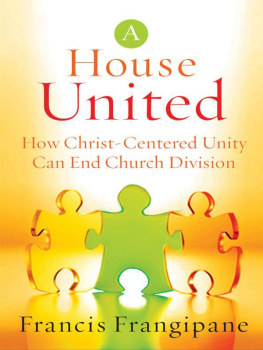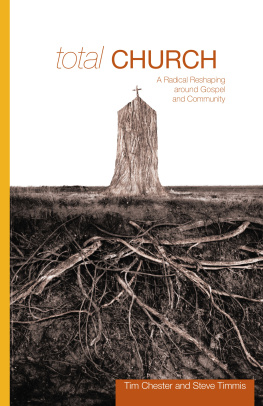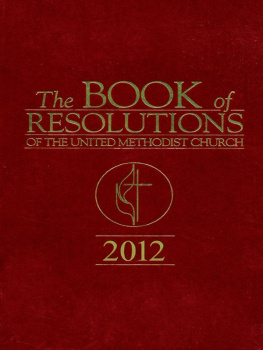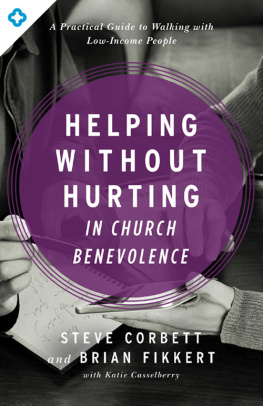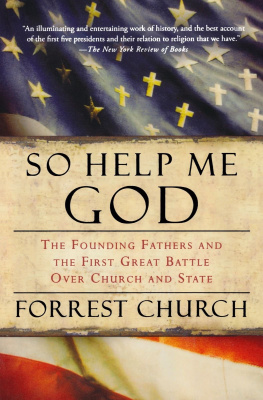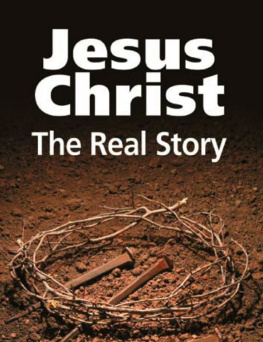ARE WE REALLY BETTER TOGETHER?
AN EVANGELICAL PERSPECTIVE ON THE DIVISION IN THE UMC
REVISED EDITION
Copyright 2018, 2020 Abingdon Press
All rights reserved.
No part of this work may be reproduced or transmitted in any form or by any means, electronic or mechanical, including photocopying and recording, or by any information storage or retrieval system, except as may be expressly permitted by the 1976 Copyright Act or in writing from the publisher. Requests for permission can be addressed to Permissions, The United Methodist Publishing House, 2222 Rosa L. Parks Blvd., Nashville, TN 37228-1306 or emailed to .
ISBN 978-1-7910-07188
All Scripture quotations, unless otherwise indicated, are taken from the Holy Bible, New International Version, NIV. Copyright 1973, 1978, 1984, 2011 by Biblica, Inc. Used by permission of Zondervan. All rights reserved worldwide. www.zondervan.com The NIV and New International Version are trademarks registered in the United States Patent and Trademark Office by Biblica, Inc.
Scripture quotations marked NKJV are taken from the New King James Version. Copyright 1982 by Thomas Nelson. Used by permission. All rights reserved.
Quotations noted Book of Discipline are from The Book of Discipline of The United Methodist Church, 2016 (Nashville: The United Methodist Publishing House, 2016) unless otherwise indicated.
20 21 22 23 24 25 26 27 28 29 10 9 8 7 6 5 4 3 2 1
MANUFACTURED IN THE UNITED STATES OF AMERICA
CONTENTS
A WORD FROM THE AUTHORS
This book is one in a series of volumes commissioned commissioned by Abingdon Press to provide different viewpoints regarding the division that exists within The United Methodist Church. The series was originally released in 2018 as United Methodists were preparing for a special General Conference to be held in St. Louis in February 2019. Its purpose was to resolve our differences regarding marriage, ordination, and sexual ethics.
Some of the books in the series argued we needed to change our sexual ethics to a more progressive view. Others made the case that the church could remain united by allowing for different beliefs and practices regarding marriage and the ordination of practicing gay persons. Most took as a given that we are better together.
Though we doubted a church that promotes contradictory teachings regarding sexual ethics is somehow more faithful to what God has revealed to be his will, we spent little time in this book debating whether United Methodists are better together. Instead, we provided abundant evidence that progressive, centrist, and traditionalist United Methodists are not together when it comes to our understanding of the Bible and its inspiration, our sexual ethics, or what it means to be in mission to the world. In fact, on some of the most important issues of the Christian faith, we showed that progressive and traditional United Methodists could hardly be further apart.
A year after we made the case in Are We Really Better Together? our thesis has now become the general consensus of the church. It took the most harmful General Conference that The United Methodist Church has ever experienced to make our irreconcilable differences abundantly clear to those who had insisted on denying reality. But leaders of all perspectives now agree it is time to separate.
The question the church must now answer is How can we best part company? Our solution, argued in this book and for the past twenty years in our other writingsand supported by all the evangelical renewal movements within The United Methodist Churchis a respectful, negotiated settlement that creates two or three new denominations, each receiving its fair share of the assets of what is presently The United Methodist Church. And of course, a central concern as separation looms is to continue funding the global church where it is the poorest and the fastest growing (primarily Africa and Asia), so that it may continue its good work for Christ and his kingdom.
In these pages, we believe we have amply demonstrated our thesis that we are a deeply divided church and we are no longer better together. But more importantly, we close once again with an impassioned plea: we implore the 2020 General Conference delegates to liberate various groups in the church to do the fruitful ministries God has called them to do without any group having to compromise their core doctrinal, ethical, and missional convictions. We believe the vast majority of United Methodists are tired of wasting time and money fighting destructive battles over irreconcilable differences; that they now recognize we are not better together; and that they want our leaders to find a fair and just way for separating the church.
For the sake of the people called Methodist and for the church universal, let us stop fighting and part ways as amicably as possible.

PREFACE
We will make no attempt in this slim volume to exhaustively rehearse the various arguments that have been marshaled for and against The United Methodist Churchs sexual ethics, its teachings on marriage, and its ordination standards. The churchs positions on these matters are not substantially different from the historic positions of the Roman Catholic Church, the Eastern Orthodox Church, and the vast majority of Protestant Christians worldwide. For at least the past fifty years, The United Methodist Church and other communities of faith have intensively studied these matters, prepared major statements, and revised or reaffirmed their teachings accordingly. In addition to this body of work, biblical scholars, Christian ethicists, theologians, Christian counselors, therapists, medical doctors, and geneticists have addressed the issues from a variety of perspectives, so there is no need here to revisit all the arguments in detail.
To its credit, The United Methodist Church first engaged these matters almost fifty years ago, before it became more widely acceptable to do so in broader US culture. Furthermore, the statement
Clearly, the church was trying hard to make a very important distinction. It is not opposed to people who experience same-sex attraction or those who identify themselves as gay or lesbian. These people, no less than others, says the church, are individuals of sacred worth, created in the image of God. However, the church also wanted to make clear that it finds the practice of same-sex intimacy to be incompatible with Christian teaching. So to be perfectly clear, The United Methodist Church does not teach that people who experience same-sex attraction or identify themselves as LGBTQ+ are themselves incompatible with Christian teaching. The church only teaches that the practice is. It adamantly opposes the idea that people are, in and of themselves, incompatible when it comes to Gods grace and love.
To be sure, LGBTQ+ people and their advocates would argue there is no real difference between the desire and the practice of sexual intimacy; the practice, they maintain, is part and parcel of an LGBTQ+ persons identity. Forbidding LGBTQ+ people from engaging in acts of sexual intimacy, they claim, is unjust, harmful, and even cruel, no matter how hard the church tries to differentiate the person from the practice. Consequently, it is not unusual to hear some LGBTQ+ advocates claim The United Methodist Church finds LGBTQ+ people incompatible. We of course do not believe this is the case, but we understand how LGBTQ+ advocates arrive at their justification for making the claim.



